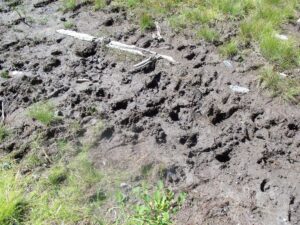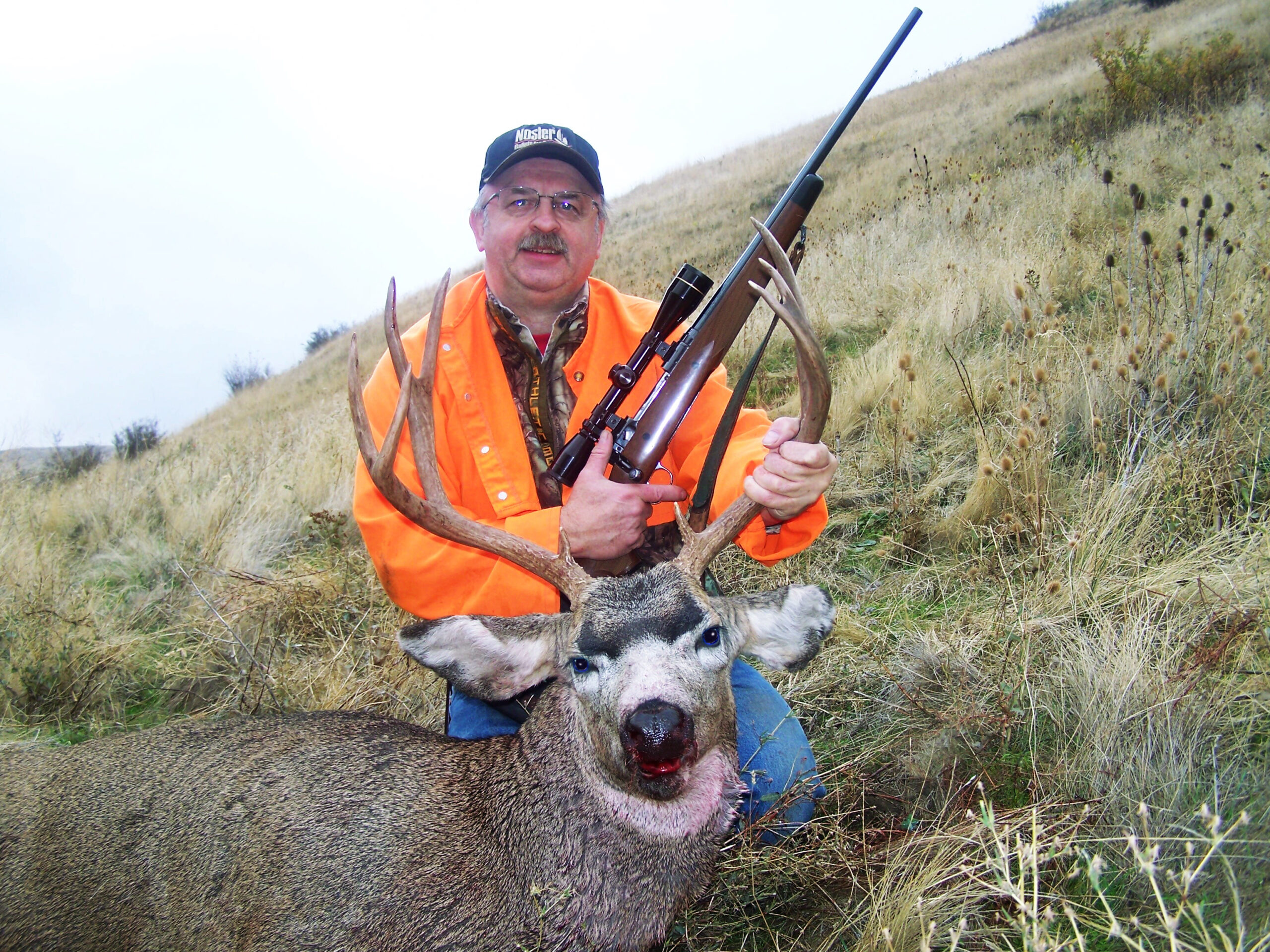
By Marcie Young | Contributing Writer
Deer hunting was and has remained one of the most popular pastimes and sports in many places throughout modern history.
However, for beginners, it can be daunting as there are so many things to remember when you go deer hunting. After all, deer are strong and majestic animals, and hunting for them can be challenging even for the more experienced hunters.
Fortunately, I got some useful tips that can help you avoid beginner’s mistakes. To be honest, I wish I had known all these things when I started hunting deer. There are some things to consider which may just boost your odds of success.
Be Prepared
Good preparation is crucial for a successful hunt, and here are some basics I never skip when going on a hunt.
1. Know the Area
This might seem obvious, but many beginners forget to do it. It is important to familiarize yourself with the terrain where you will be hunting. It will enable you to find potential hunting spots more easily and take up ideal positions without wasting time or energy. Look for active game trails and other signs of deer activity.
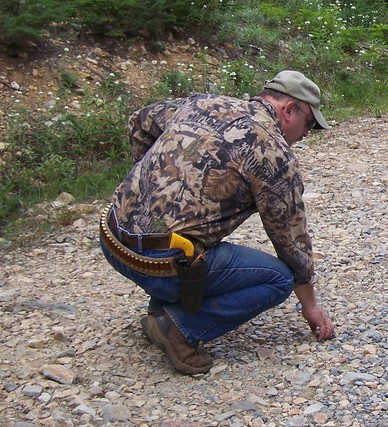
When I started hunting, I thought this step was redundant. After all, how hard can it be to find a deer? They are practically everywhere, and only a blind person would miss them, right? Well, I was so wrong!
After I spent my first deer hunting trip just wandering around aimlessly and came home empty-handed, I realized that I needed to take this part of hunt preparation more seriously.
2. Be Aware of the Rut
My dad loved to hunt, and he always had stories about animals to tell. He told me that when mating season came around, most animals didn’t care so much about their own safety, they just wanted to find a partner.
During the rut, deer are more likely to be active and move around more. This makes it an ideal time for hunting as you are more likely to see deer and have a higher chance of notching a tag. During the rut, your chances of seeing a deer in broad daylight are much higher.
3. Reduce/Mask Your Smell
Deer have a keen sense of smell. According to the Scottish Wildlife Trust, their sense of smell is 1000 times stronger than ours since they have 250 million scent receptors, whereas humans have only 5 million!
To improve your odds, wash your body with a scent-free soap. Use towels that have been washed with a scent-free detergent. Make sure the clothes you plan to wear are also washed with a scent-free detergent.
Don’t use perfumes or even deodorants that aren’t scent-free. Always keep your hunting clothes stored in an airtight container or at least a plastic bag so that they don’t absorb surrounding odors.
Dress appropriately for the weather. You don’t want to get cold, but you also don’t want to wear too many clothes and start sweating as a result. Deer can easily pick up on your perspiration and avoid going anywhere near you.
Finally, don’t drink alcohol or eat spicy foods that will release strong scents while your body digests them. My favorite food before hunting is nuts and raisins. Nuts will keep you fed for hours, they are healthy, easy to digest, and don’t have strong scents that might deter deer. These foods give me energy while being easy to digest, and more importantly, without releasing any strong scents. I don’t drink coffee that morning either, and instead, I drink warm water with a little bit of lemon juice.
This all may sound a bit extreme, but you can never take too many steps to reduce your body odor. Failing to do so might ruin your chances of even getting close enough to a deer to score.
At the end of the day, when I return home, I take a long shower to wash away all of the scents from my body. I use a scent-free soap. After trying several brands, I was positively surprised by Dove and their scent-free soap bars.
However, I don’t wash my hair at least 2-3 days before the hunting trip, because I don’t want to have any fragrance of shampoo and conditioner on me. This is also useful because my long hair is much easier to manage then, and I prefer to tie it in a tight bun or braid it, so that it doesn’t get in my face.
To further mask any human odor, I use Scent-A-Way Anti-Perspirant, specifically made for hunters. I keep my hunting clothes separate from all other clothing, in a spare room.
4. Wind Direction
Wind direction is another factor that can affect your hunting success. Try to position yourself downwind from game trails or feeding areas so that they don’t get wind of you and scatter. You should feel the breeze blowing against your face while approaching the hunting location, assuring your approach from downwind.
Related Resource: Deer Hunting: 6 Methods To Determine Wind Direction [The Hunting Company]
Also, when you leave the hunting area, try to also move downwind because you don’t want remaining deer to remember your presence in that area and avoid it in the future
5. Carefully Choose Your Deer Stand Placement
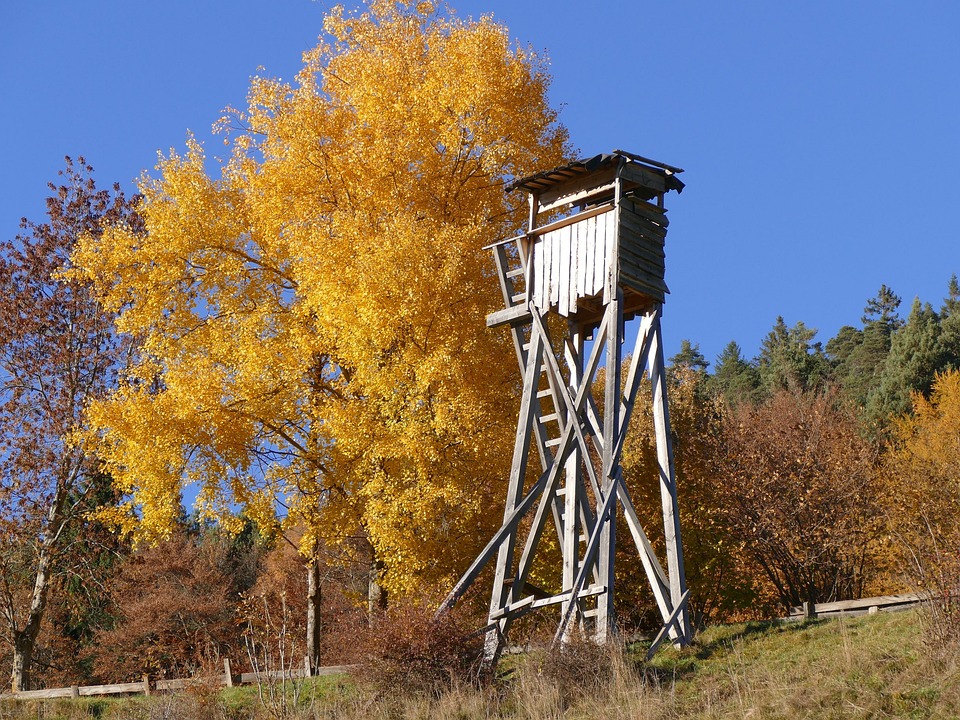
Make sure that there is adequate space around your location so deer can pass by without getting spooked easily.
If possible, choose a spot where trees or other obstacles will help shield you and provide some extra cover. If using a tree stand, try to choose a tree surrounded by at least one other tree for your stand placement. This will reduce the chance of deer spotting your shadow on the ground.
Climb higher. Deer will not be able to see you so easily, and your scent will blow higher above the ground. However, don’t go too high, as you don’t want to narrow the window of your shot. Also, in my personal experience, spending hours on a deer stand that’s too high can be quite unpleasant.
The Equipment
Proper equipment is critical for a successful hunt. Many beginners fear that they will need some expensive and overly complicated equipment, but that’s far from the truth. I have been hunting deer for several years now, and at some point, I went through a phase when I was obsessed with having the newest and the most expensive equipment.
However, I quickly realized that too much equipment wasn’t helping, and it was actually hindering me (not to mention how much money it cost!). That’s when I adopted a more minimalistic approach and started using only the equipment that I really needed. So, my advice is to stick to some basic equipment, and you will be good to go.
Clothing
The weather can change quickly in the woods, so always be prepared with the right warm clothes and shoes to keep yourself comfortable during your hunt. Additionally, try to wear darker colors that will blend into your surroundings better than bright ones, but be sure to wear fluorescent orange where required.
Weapon choice
Whether you use a modern rifle, muzzleloader or bow, this is your most important consideration. Whatever your choice, practice…and then practice some more.
In my opinion, the rifle is great for beginners as it is easier to maintain and requires less manual strength.
I am definitely a rifle girl, and I have never tried deer hunting with a bow. However, I could see myself trying it, although I don’t think anything will ever replace a good hunting rifle for me.
Stay Silent, Be Patient
Hunt quietly and keep your movements to a minimum. Walk slowly and carefully. Don’t chew, try not to cough, and don’t hum, sing, or make any other noises that will signal your presence.
Pay close attention to your surroundings to detect any movement or changes in noise levels that might indicate the presence of deer nearby.
You might try learning to use a deer call, which is popular in some areas, especially Southeast Alaska. Deer calls are an excellent way to attract deer, but make sure you learn how to use one properly.
Watch for does
During the rut, bucks will concentrate on finding does. Look for scrapes, and if you spot one or more does in a group, keep your eyes open because chances are a buck will eventually show up.
Shoot Straight!
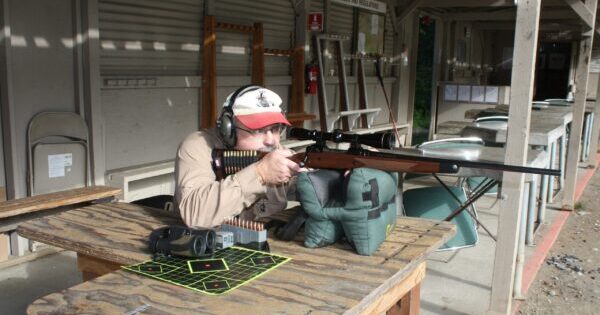
Be sure your rifle is properly sighted-in, and you know where that bullet is going. A poorly-placed shot can result in a wounded animal getting away. Range time in advance of the hunt is critical to your success. A quick, clean kill is ethical and humane.
Conclusions
Deer hunting is an American tradition, but it is not an enterprise to be taken lightly. You must prepare well, use the appropriate equipment, and behave carefully once you are in the field.
Devoted hunters learn through experience. It may take years but in the process, you will have lots of fun, learn much about yourself and your quarry, and this will improve your odds of success.
Finally, don’t feel discouraged! Deer hunting can be intimidating when you are a beginner, but it is a rewarding experience once you get the hang of it. That’s why I wanted to share some basic tips with you and show you that I was in your shoes not so long ago.
As you can see, I made plenty of beginner mistakes, and I feel that there is still so much to learn. I’ve come a really long way since my first deer hunting trip, and I am sure you will overcome any initial obstacles in no time!


